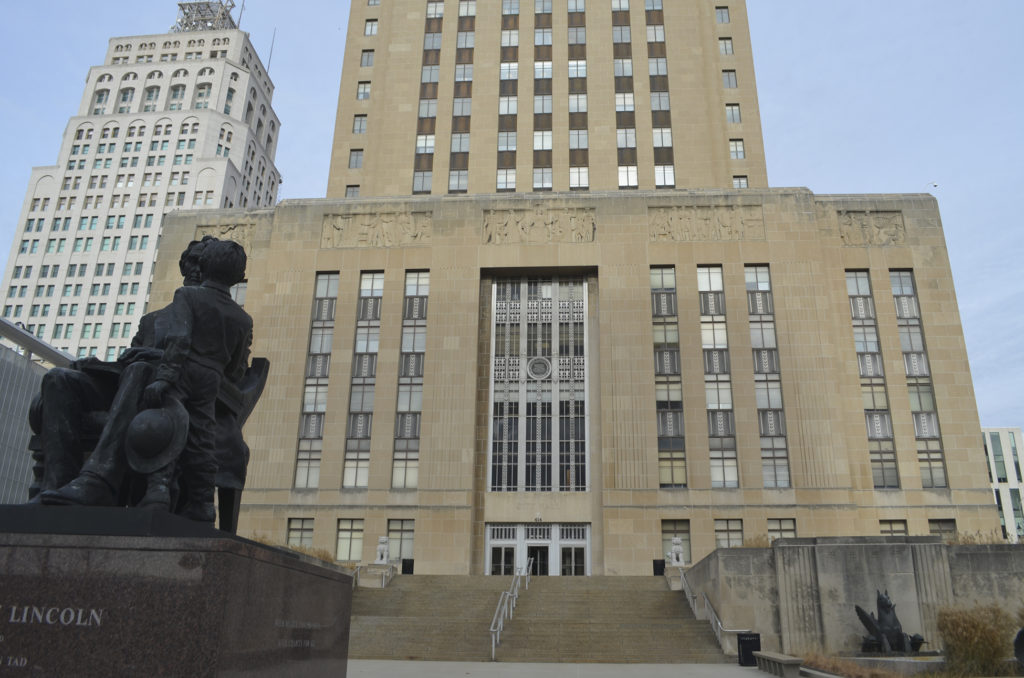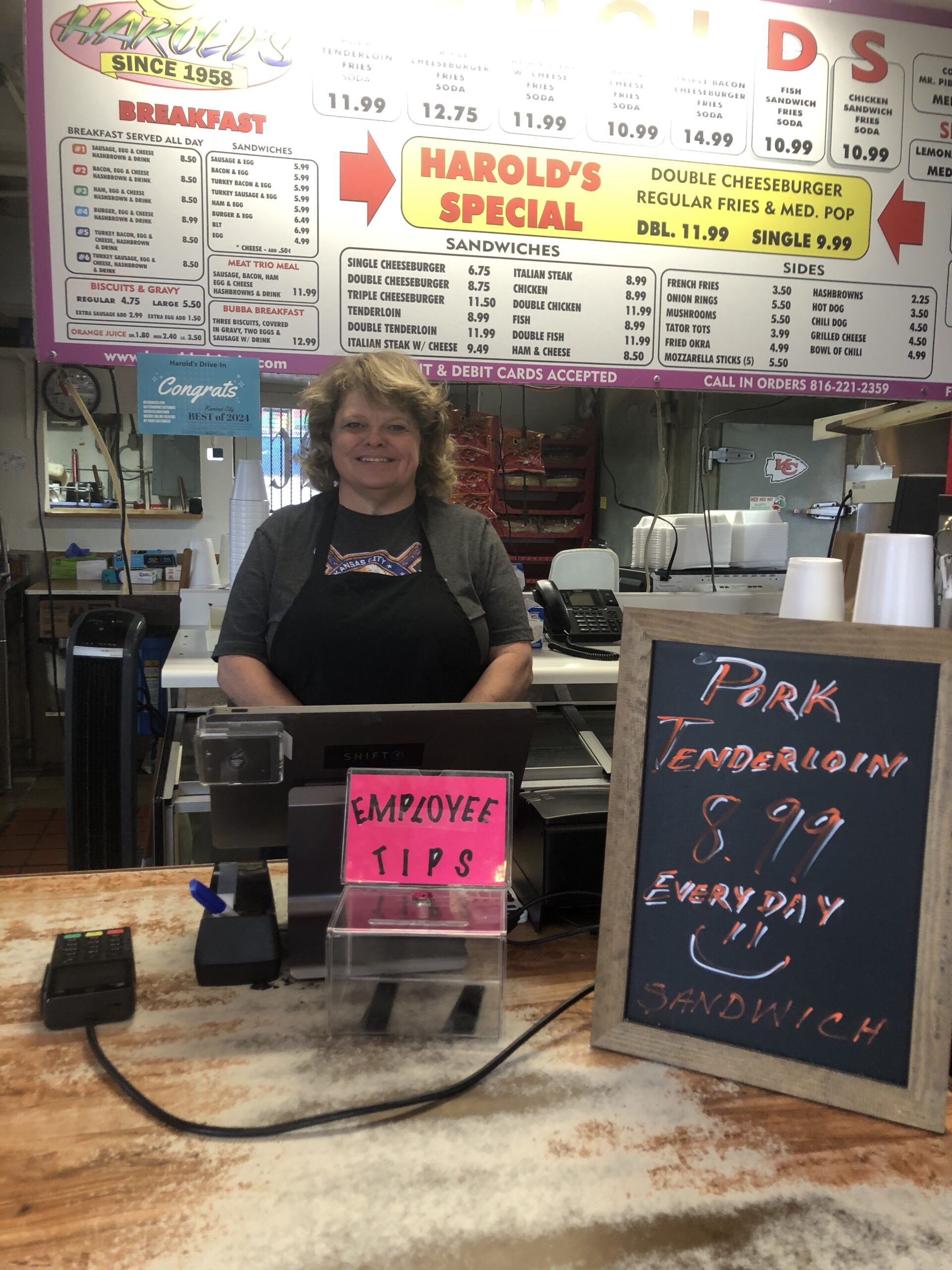Northeast News
July 5, 2017
KANSAS CITY, Missouri – The City Council’s Airport Committee combined with the Finance & Governance Committee on the morning of Wednesday, June 28 to discuss 4th District Councilwoman Katheryn Shields’ proposed ordinance regarding the issuance of $990 million in airport revenue bonds for the construction of a new single terminal at Kansas City International Airport.
Ordinance No. 170439, introduced by Shields on June 8, asks Council members to consider supporting a publicly-financed single terminal in addition to the the private financing proposals currently being solicited by the City through a Request for Qualifications/Proposals (RFQ/P). A second addendum to the City’s RFQ/P – which created a bifurcated submission process that set a July 27 deadline for proposals and an August 10 deadline for submitting accompanying financials – was released to the public on June 13.
Shields opened the June 28 committee meeting by attempting to separate fact from fiction in the airport debate, explaining that under either a public or private financing model, airport revenues would be utilized to cover the roughly $85 million annual bond payments on the new terminal.
“Whether we do public financing or private financing, that $85 million which is generated at the airport are the only funds that will be used to pay the bonds,” Shields said. “That’s true whether we do a public financing through airport revenue bonds, or a private financing of some other mechanism.”
Shields pointed out that when the City went to the public to support renovations at KCI in 2003, over 70% of voters cast their votes in favor of the improvements. She added that the Council should investigate all potential options as it looks to make a billion-dollar decision.
“If the public option makes more sense financially, I think our citizens are perfectly capable of understanding that it is only the revenue at the airport that will pay those bonds,” Shields said.
John Green, Chief Financial Officer (CFO) of Kansas City Missouri’s Aviation Department, told the Council that under the plan being proposed, the airlines would be responsible for making up the difference if airport revenues fall below expectations.
“Under a residual agreement, the airlines would backstop that,” Green said.
Members of the public also testified before the joint committee. John Murphy, a partner at law firm Shook, Hardy & Bacon, spoke out in favor of a private financing model, espousing his belief that privately-funded construction could be completed faster than with public financing.
“The voting public does not embrace the idea of a publicly funded terminal,” Murphy added.
Retired Kansas City Star reporter Jim Fitzpatrick disagreed, speaking out in favor of Shields’ public financing ordinance.
“With the lower interest rate that the City can get, there would be a significant saving of money on interest…over 30 years, it’s going to be an incredible amount of money,” Fitzpatrick said. “To me, the financing element here is an overpowering argument.”
At the conclusion of public testimony, Airport Committee Chair Jolie Justus proposed holding the ordinance for further discussion in July. She also suggested that the Council begin considering ballot language for a private financing model before the final presentations from the RFQ/P finalists, which are currently scheduled for August 14. The hope from Justus is that the Council can limit the amount of public discourse that will have to be conducted between August 14 and August 24, when the Council will be expected to approve final ballot language for a November 7, 2017 election.
The joint committee also took up Ordinance No. 170463 during the meeting – which appropriates another $475,000 from an Aviation Department account into a Law Department account in order to retain the legal services of firms Husch Blackwell LLP and Wilmer Cutler Pickering Hale and Dorr LLP. The two law firms had initially been hired to vet a proposed Memorandum of Understanding between the City and Burns & McDonnell for a privately-financed single terminal airport; a proposal which reignited the dormant airport debate earlier this spring. Since the initial $475,000 agreement had been approved by City Council, the role of the outside legal counsel has shifted, leading to the creation of an RFQ/P and two subsequent addendums.
With an ever-increasing scope of work, the City Council is expected to approve an additional $475,000 agreement with the outside legal team. Mayor Pro Tem and 1st District Councilman Scott Wagner was one Councilman who expressed hesitancy to continue the agreement, as he worried that the initially finite contract could ultimately be extended into perpetuity as the City embarks on a years-long design and construction process.
“I do have concern in that this group was brought forward without going through an RFP process,” Wagner said. “If there is a possibility that now we are taking this legal service provider through the entire process, I at least have a little reservation.”
Second District Councilman Dan Fowler suggested that the Council look at putting additional legal services out to bid after wrapping up the RFQ/P process.
“We’ve gone through a great deal of effort and certainly a lot of money to get our process right for the RFQ/P,” Fowler said. “I think we have to be consistent with that moving forward.”
Third District Councilman Quinton Lucas defended the Council’s decision to appropriate further funds for outside counsel, saying that the legal team has been well worth the expense as the Council considered awarding a three-decade lease agreement on a $1 billion deal.
The joint committee ultimately advanced the ordinance, and it will be considered during the full Council session on Thursday, June 29.


















